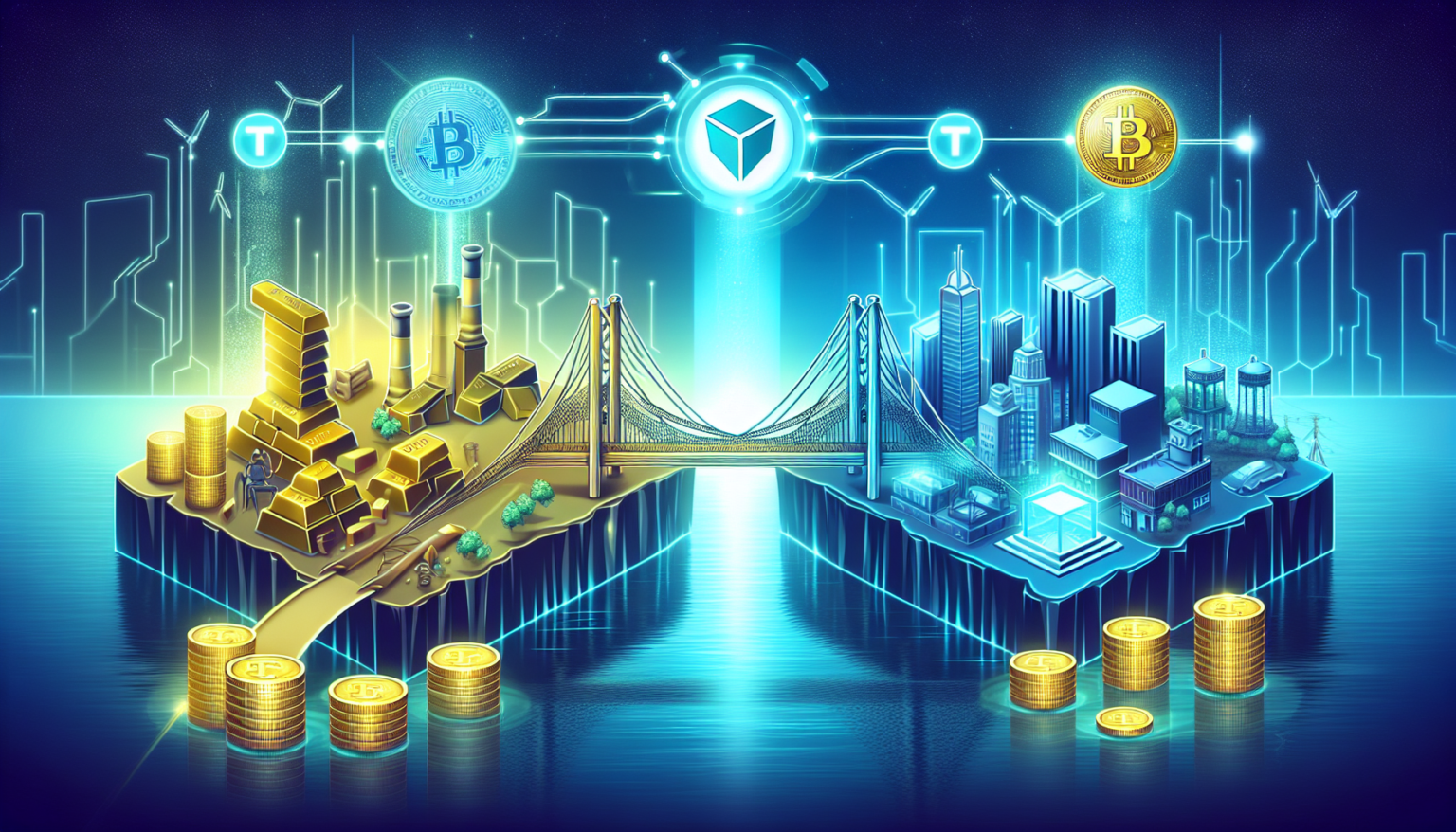Understanding Real-World Asset Tokenization
What Is Asset Tokenization?
Asset tokenization refers to the process of representing ownership of a real-world asset through digital tokens on a blockchain. These assets can range from physical properties like real estate and artworks to financial instruments such as stocks and bonds. By converting these assets into digital tokens, they become more accessible and easier to trade.
How Does Tokenization Work?
The process begins with the identification and valuation of the asset. After determining the asset’s worth, a smart contract is created on a blockchain which acts as a digital agreement documenting the terms of ownership and the rights associated with the asset. Once the contract is live, tokens are minted and distributed to represent fractional ownership or rights related to the asset.
The Role of Blockchain Technology
Blockchain technology underpins the tokenization process by providing a secure, transparent, and immutable ledger. Each transaction, whether it’s the initial token issuance or subsequent trades, is recorded on this ledger, making the history of ownership and transactions traceable. This transparency reduces the potential for fraud and enhances trust among investors and users.
Benefits of Asset Tokenization
Increased Liquidity
One of the most significant benefits of asset tokenization is increased liquidity. Traditional assets often require significant time and effort to buy or sell. Tokenizing these assets allows for fractional ownership, meaning that rather than one entity owning an entire asset, many investors can hold a fraction, making it easier to enter and exit positions.
Access to Global Markets
Tokenization also opens doors to global markets. Investors around the world can participate in investment opportunities that were previously inaccessible due to geographic or financial barriers. This democratization of investment opportunities not only broadens the investor base but also increases competition and potentially leads to better pricing for assets.
Lower Transaction Costs
The efficiency of blockchain technology reduces transaction costs associated with buying and selling assets. Traditional asset transactions often involve intermediaries such as brokers, escrow agents, and legal counsel, each of whom takes a fee. By streamlining the process, tokenization can significantly cut down these costs.
Regulatory Considerations
Legal Framework for Tokenized Assets
As asset tokenization gains traction, regulatory frameworks surrounding it are evolving. Different jurisdictions have distinct laws governing securities, property rights, and digital assets. Understanding these regulations is crucial for anyone looking to engage in asset tokenization. Compliance with local laws not only ensures the legality of the tokenized assets but also protects investors.
Challenges in Regulation
While the potential of tokenization is vast, navigating regulatory hurdles can be challenging. Regulators often grapple with how to classify tokenized assets—whether they are securities, commodities, or something entirely new. This ambiguity can lead to uncertainty for issuers and investors alike, making them cautious about entering the market.
Applications of Tokenization in Various Industries
Real Estate
Real estate is one of the primary industries benefiting from asset tokenization. By tokenizing property, investors can buy fractional shares, making it more affordable to invest in high-value properties. This opens up new investment opportunities for individuals who otherwise couldn’t afford to buy a whole property.
Art and Collectibles
Art and collectibles can also be tokenized, allowing fans and collectors to invest in pieces they love without needing to purchase them outright. Platforms that facilitate art tokenization use blockchain to ensure provenance and authenticity, which is critical in high-value art markets.
Financial Instruments
Tokenization extends to financial instruments like stocks, bonds, and even derivatives. By creating digital versions of these instruments, they can be traded more easily on decentralized exchanges, providing more opportunities for hedging and investment.
Challenges and Risks Associated with Tokenization
Technological Risks
While blockchain technology is celebrated for its security, it is not immune to risks. Bugs in smart contracts, potential governance issues, and the risk of cyberattacks can pose significant challenges. Investors and issuers must engage in diligent technical testing and implement robust security measures.
Market Volatility
Tokenized assets, much like cryptocurrencies, can experience extreme volatility. The value of tokens may fluctuate drastically due to market sentiment, regulatory news, or technological advancements. Investors should be aware of these risks and prepare accordingly.
Integration with Legacy Systems
For traditional financial institutions, integrating tokenized assets with existing legacy systems can be a daunting task. Many organizations may face challenges in adapting their infrastructure to accommodate digital assets, which could slow down the overall adoption of tokenization in finance.
The Future of Asset Tokenization
Trends and Innovations
As the technology matures, we are likely to see greater innovation in the asset tokenization space. Enhanced user interfaces, more advanced regulatory solutions, and improvements in blockchain technology can pave the way for a more seamless experience for investors and issuers alike.
Potential Market Growth
Analysts predict that the market for tokenized assets will continue to grow exponentially. With increasing acceptance from institutional investors and the rise of new platforms designed for tokenized assets, the bridge between traditional and digital economies seems to be widening.
Conclusion
Real-world asset tokenization is at the forefront of a financial revolution. By blending traditional assets with digital innovation, it has the potential to transform how we think about ownership, investment, and economic access. While challenges remain, the future of this new frontier is bright with promise and opportunity.








